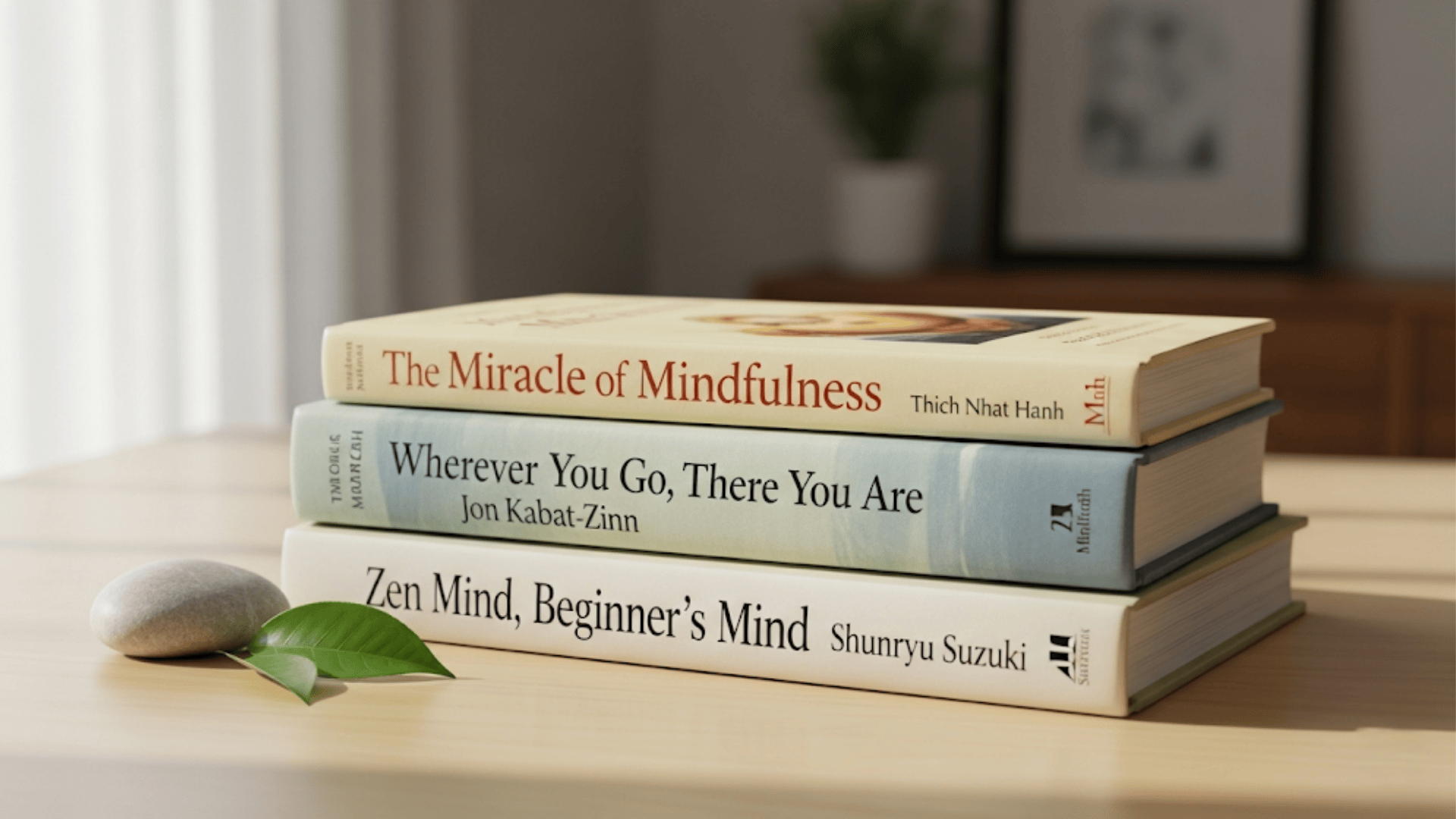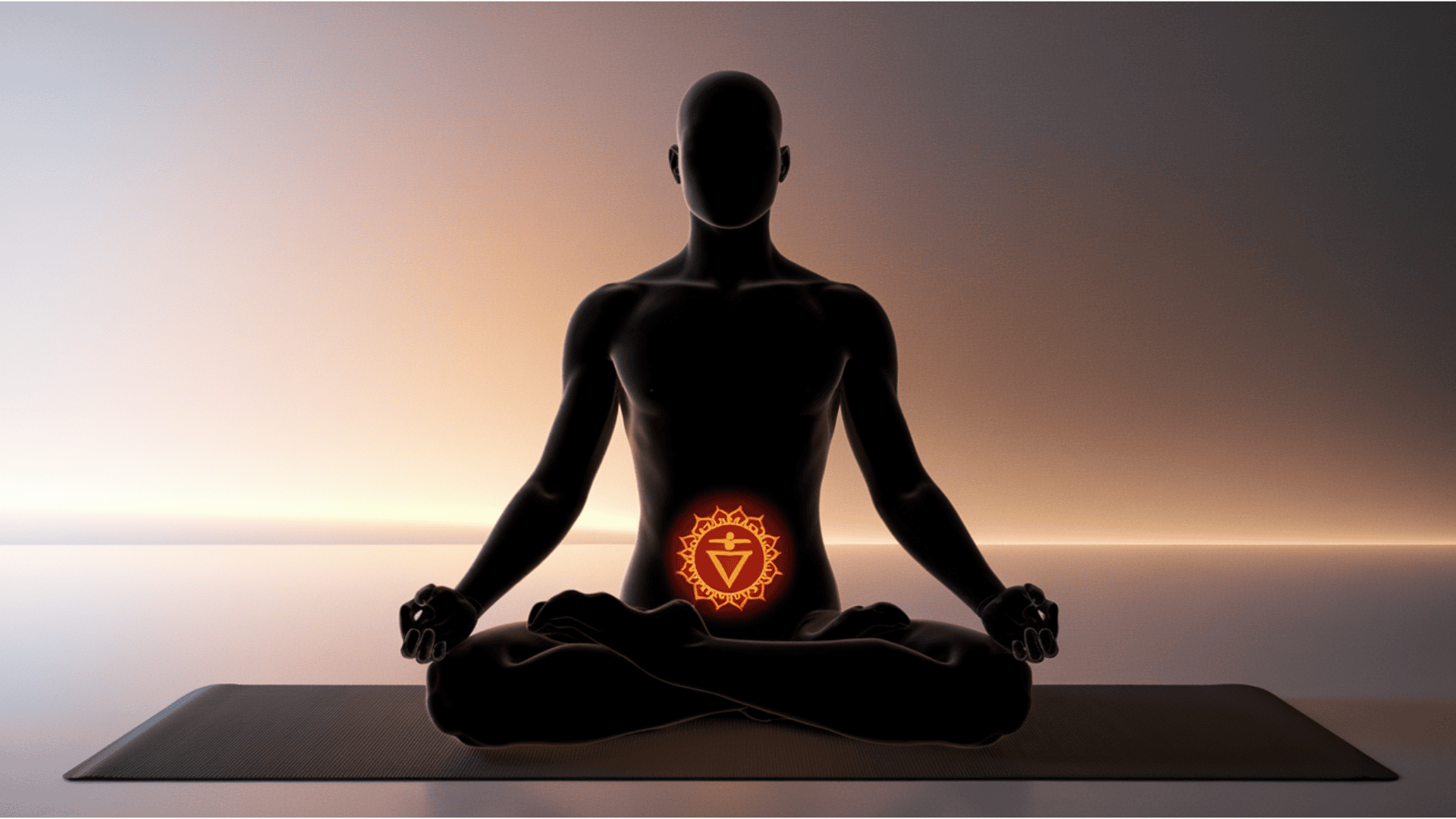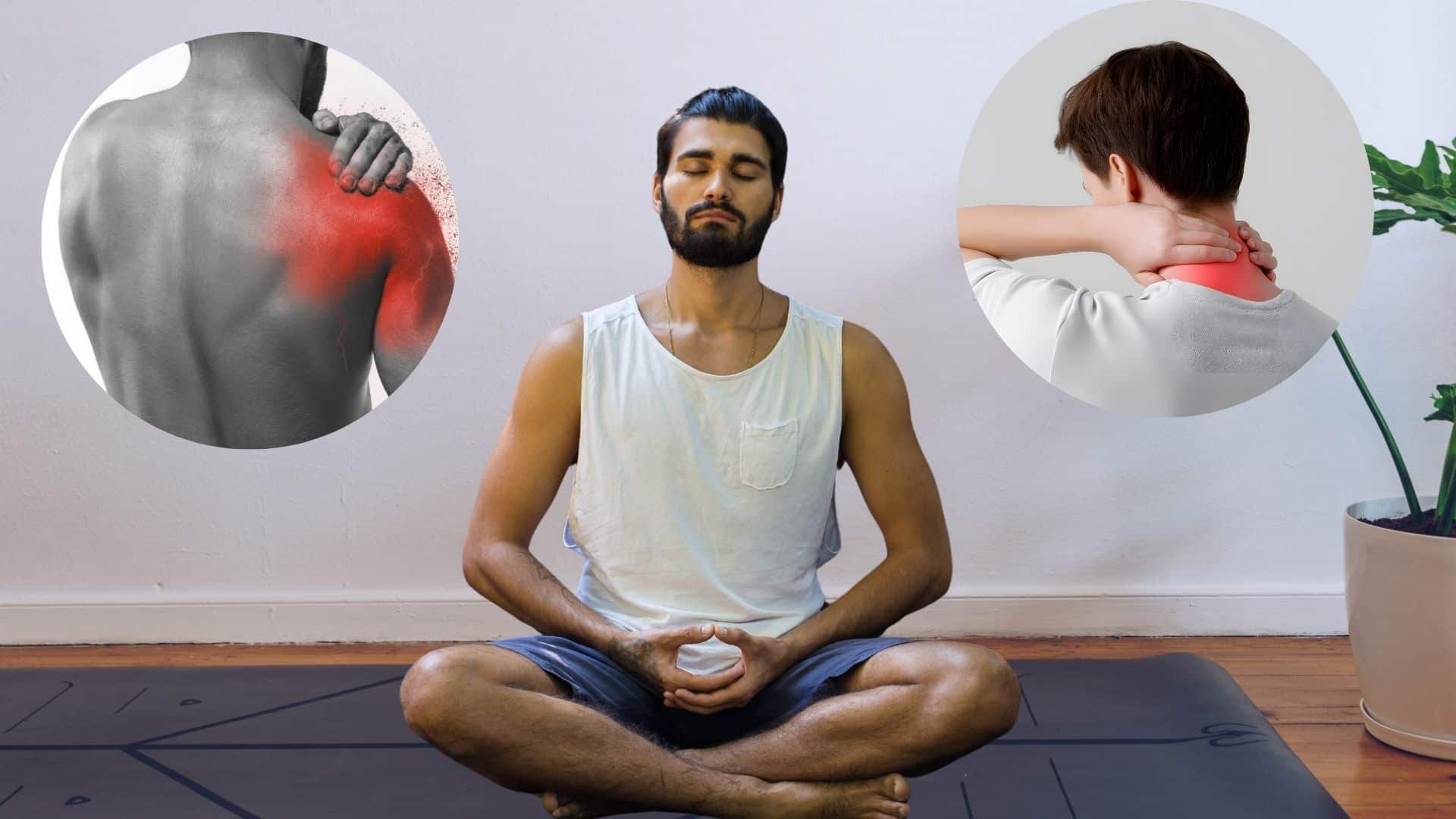Your mind races through endless thoughts. Stress builds up daily. Sleep feels impossible. Modern life demands constant attention, leaving little room for peace and tranquility.
Yet millions have found relief through meditation, not by chance, but by choosing the right guidance.
Books offer something apps and videos cannot: deep wisdom tested across centuries. They provide structured learning paths, philosophical insights, and practical techniques that are effective and lasting.
This guide examines exceptional meditation books that have changed lives worldwide.
Each offers a unique approach, ranging from scientific methods to ancient wisdom, and from beginner basics to advanced practices.
How to Choose the Right Meditation Book?
With so many meditation books available, the best choice depends on your personal goals, background, and preferred learning style. Considering a few key factors will help you pick the book that aligns with your journey.
- Beginner vs. advanced level: Beginners need simple guides, while advanced readers may benefit from detailed roadmaps.
- Focus on technique, philosophy, or spirituality: Choose based on whether you want step-by-step practice, deeper wisdom, or spiritual growth.
- Evidence-based/scientific vs. traditional/ancient wisdom: Science lovers may prefer modern studies, while others resonate with timeless traditions.
- Practical exercises vs. inspirational reading: Decide if you want hands-on practices or reflective insights.
- Length and accessibility: Short, easy reads suit busy lives; longer classics reward deeper study.
The 14 Best Meditation Books of All Time
These carefully selected books represent the finest meditation literature available today. Each offers unique insights and practical guidance.
1. The Miracle of Mindfulness
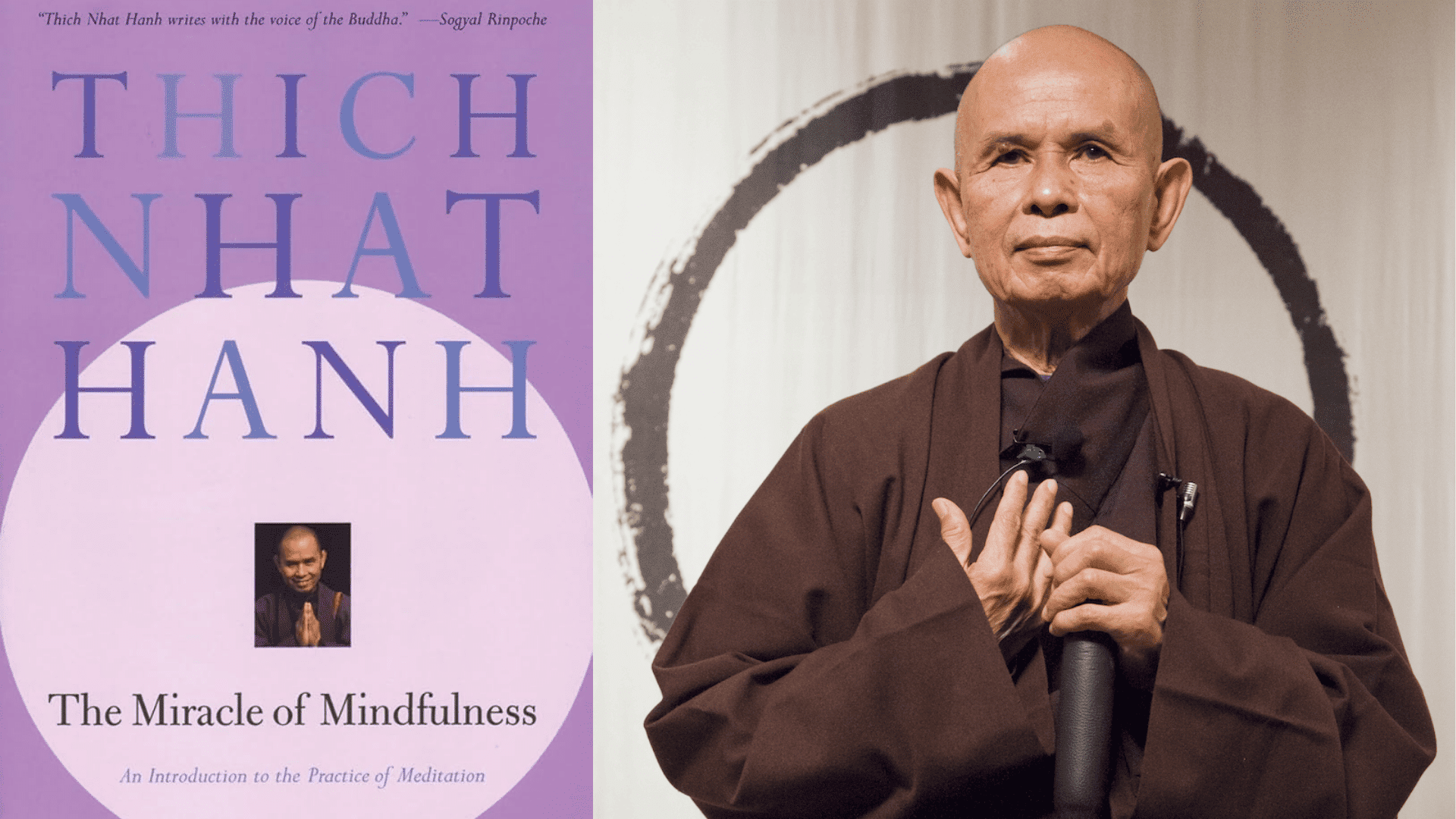
This gentle introduction to mindfulness shows how ordinary activities become sacred moments.
Thich Nhat Hanh teaches that washing dishes, walking, or drinking tea can be profound meditation practices. His warm, accessible writing style makes complex concepts feel natural and doable.
The book transforms simple daily tasks into opportunities for peace and presence.
- Author: Thich Nhat Hanh
- Core teaching: Mindfulness in daily life through simple practices
- Best for: Beginners seeking practical mindfulness tools
- Key takeaway: Every act, from washing dishes to walking and eating, can be a form of meditation.
2. Wherever You Go, There You Are
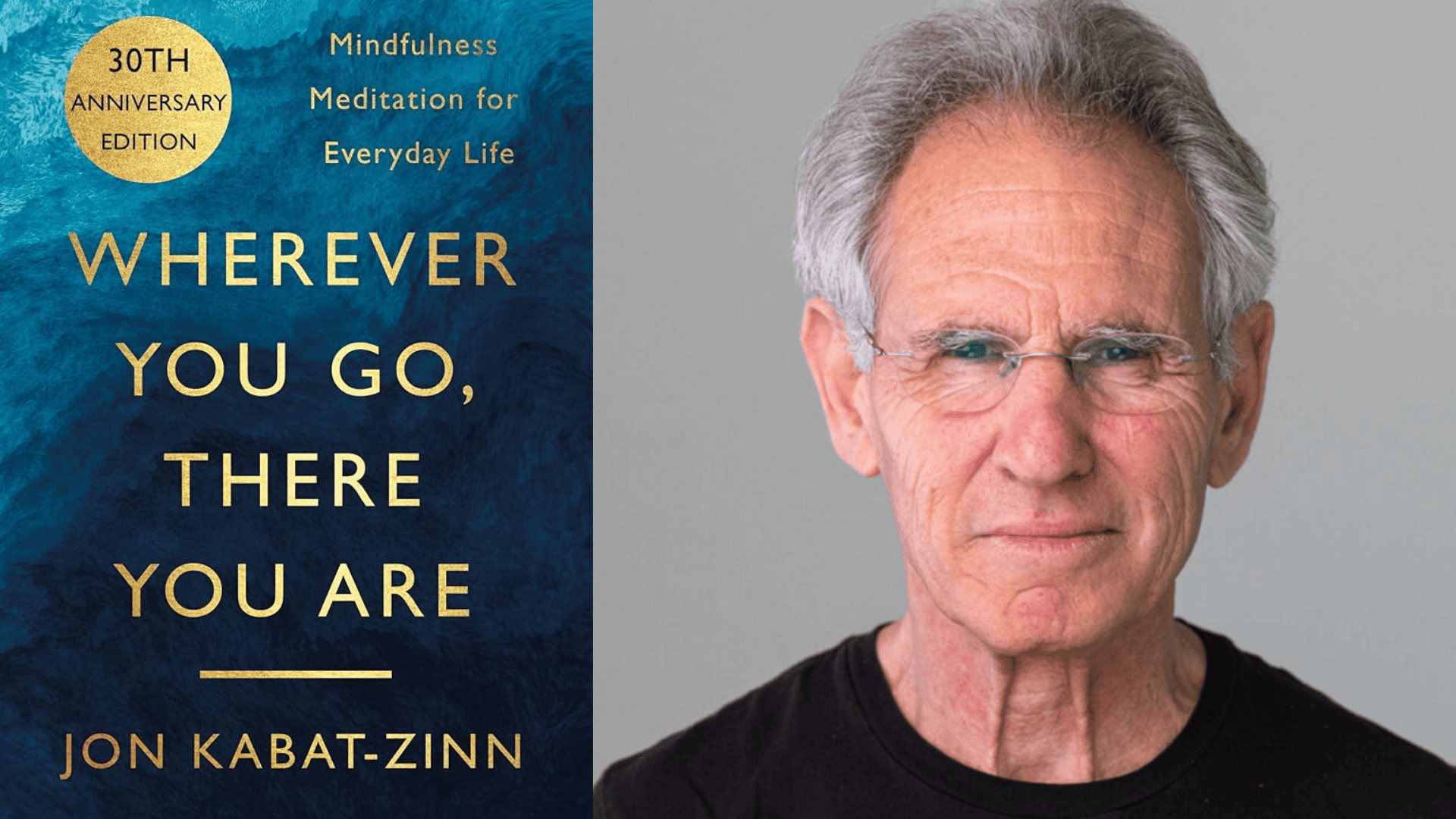
Kabat-Zinn strips away mysticism to reveal the practical core of meditation. He explains how mindfulness fits into busy modern life without requiring special postures or lengthy retreats.
The book offers dozens of short exercises you can do anywhere. His scientific background brings credibility to ancient practices, making them accessible to skeptical readers.
- Author: Jon Kabat-Zinn
- Core teaching: Mindfulness as a natural, everyday practice
- Best for: Anyone wanting a no-frills approach to meditation
- Key takeaway: Mindfulness is about “being” rather than “doing.”
3. The Mind Illuminated
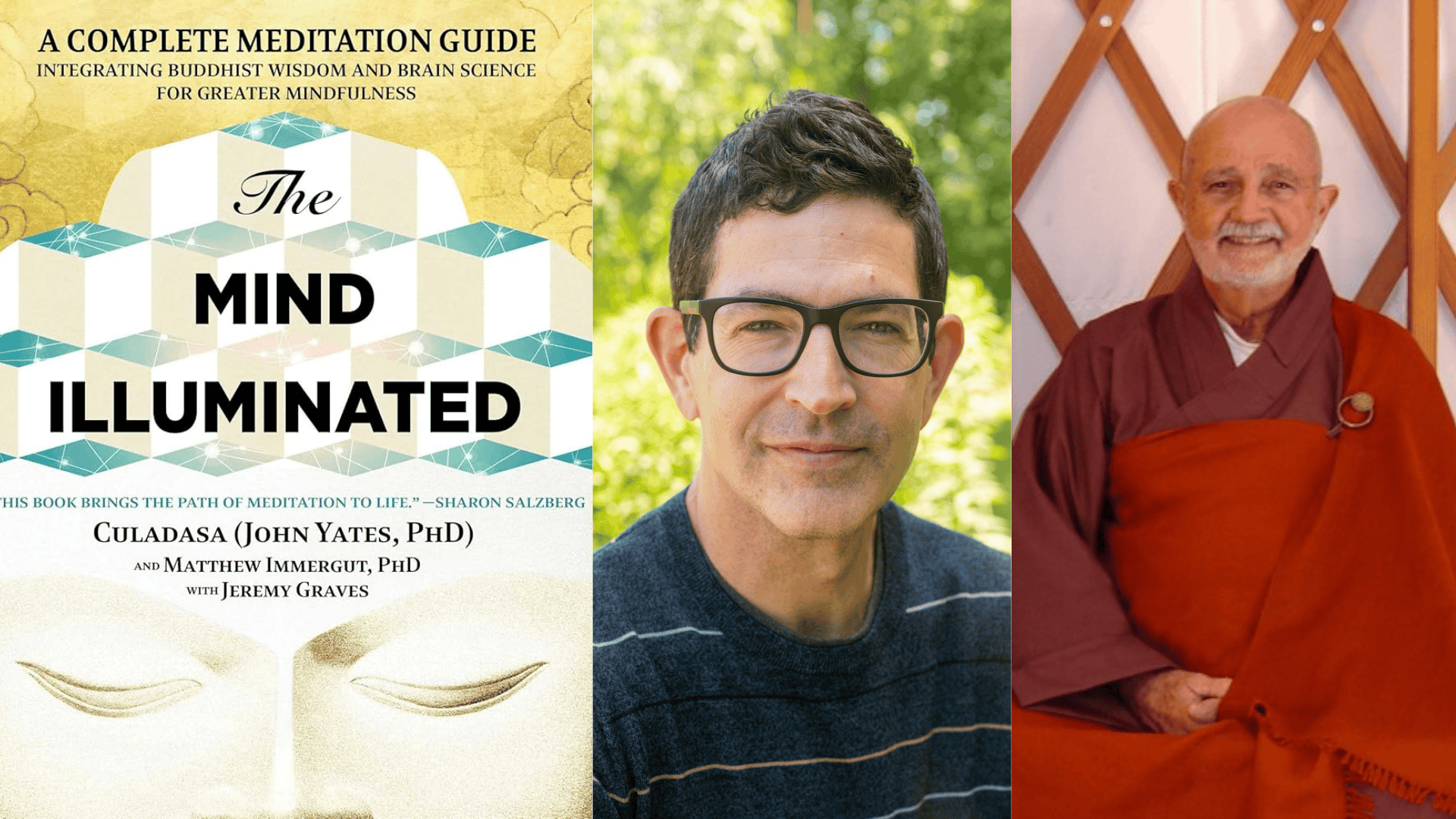
This comprehensive guide maps the meditation path from beginner to expert. Each stage includes specific techniques, common obstacles, and clear progress markers.
The authors combine traditional Buddhist wisdom with neuroscience research. Serious meditators appreciate the detailed roadmap and practical troubleshooting advice for common challenges.
- Author: Culadasa (John Yates) & Matthew Immergut
- Core teaching: A 10-stage roadmap for meditation mastery
- Best for: Intermediate to advanced meditators seeking structure
- Key takeaway: Blends Buddhist wisdom with modern science.
4. The Headspace Guide to Meditation and Mindfulness
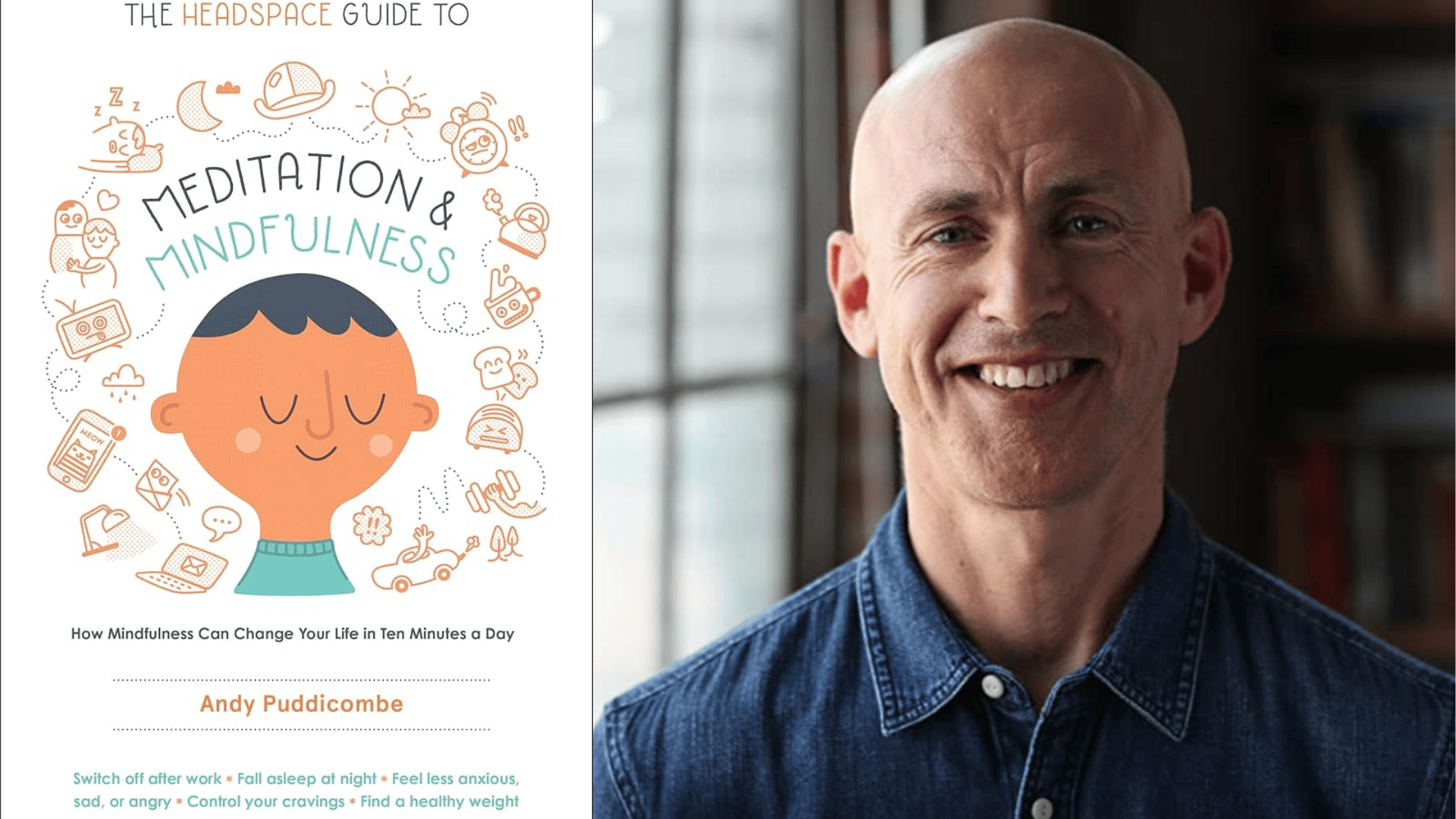
Puddicombe makes meditation accessible to skeptics and busy people. His conversational tone and practical examples demonstrate how just 10 minutes of daily practice can reduce stress and improve focus.
The book includes simple exercises and addresses common questions that beginners may have. His background as both a monk and an entrepreneur brings a unique perspective to modern meditation.
- Author: Andy Puddicombe
- Core teaching: Meditation simplified for modern life
- Best for: Beginners or busy professionals
- Key takeaway: Just 10 minutes a day can transform mental health.
5. Waking Up: A Guide to Spirituality Without Religion
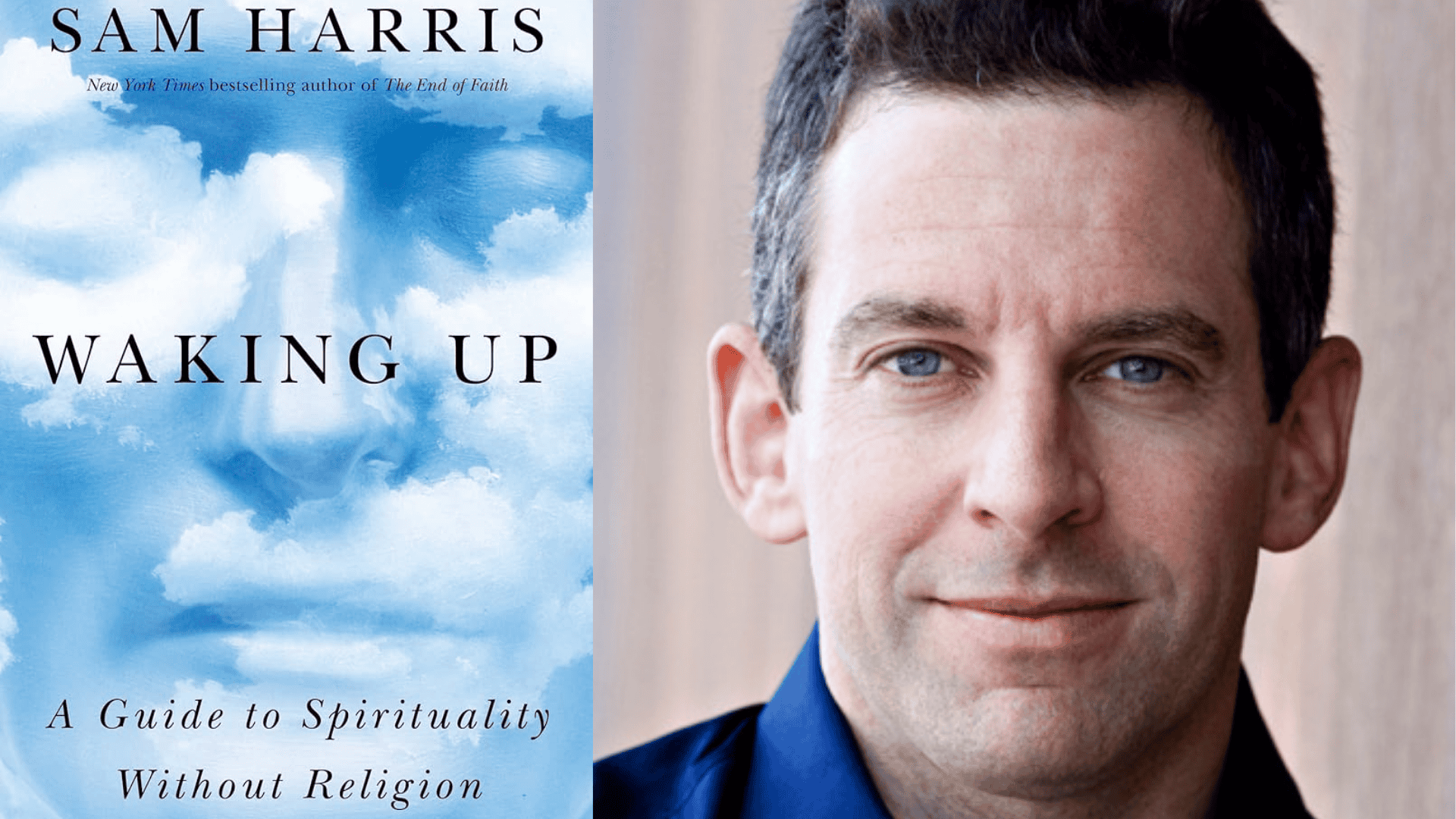
Harris approaches meditation from a rational, scientific perspective. He explores consciousness, free will, and the nature of self through meditation practice.
This book appeals to readers seeking spiritual insight without the constraints of religious doctrine. His neuroscience background and philosophical training create a unique bridge between science and contemplative practice.
- Author: Sam Harris
- Core teaching: Meditation as a tool to explore consciousness
- Best for: Secular readers, skeptics, and science lovers
- Key takeaway: Spiritual growth is not dependent on religion.
6. 10% Happier
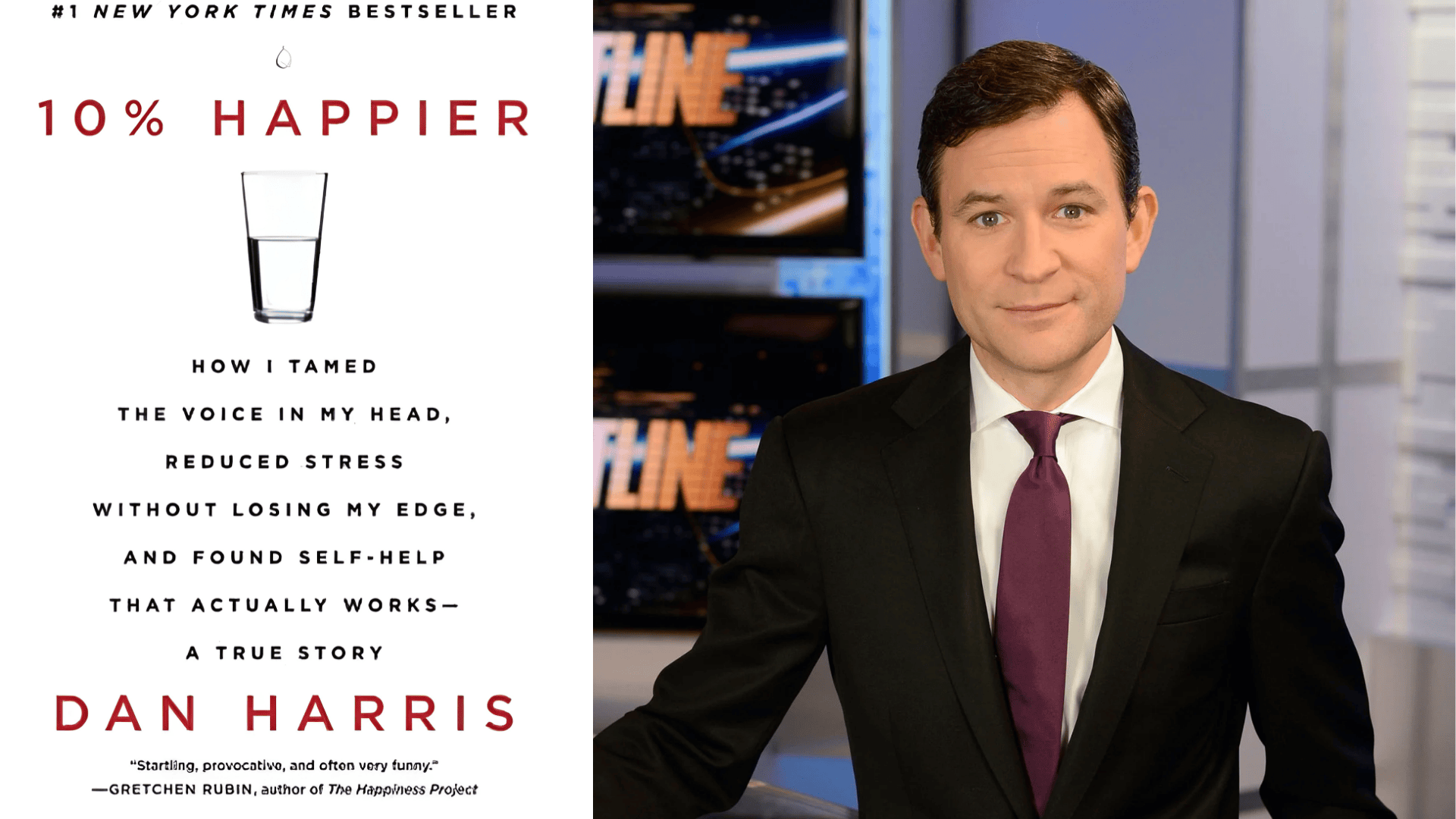
A news anchor’s honest account of how meditation helped manage anxiety and stress. Harris shares his initial skepticism and gradual acceptance of meditation’s benefits.
His realistic approach demonstrates that small improvements in mindfulness can have a significant impact.
The book resonates with busy professionals who feel too stressed and skeptical of traditional spiritual approaches.
- Author: Dan Harris
- Core teaching: Meditation for skeptics and stressed professionals
- Best for: Those doubtful about meditation’s practicality
- Key takeaway: Small changes in mindfulness bring big results.
7. Mindfulness in Plain English
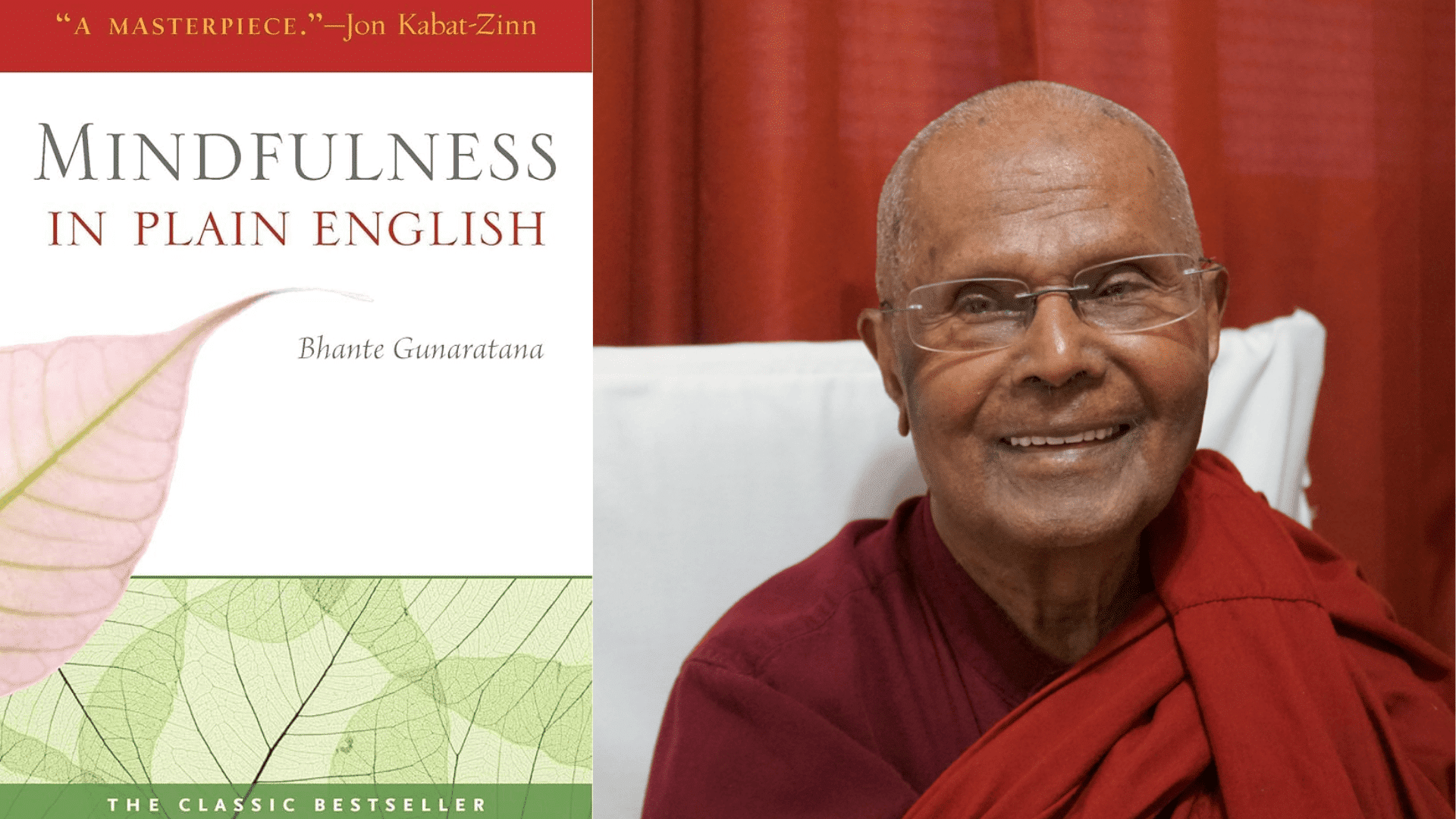
This clear, straightforward guide to insight meditation cuts through confusion and misconceptions.
Gunaratana explains exactly what meditation is and isn’t, offering practical instructions for developing sustained attention and awareness.
His decades of teaching experience shine through in his ability to address common beginner mistakes and roadblocks. The book has become a classic reference for serious practitioners.
- Author: Bhante Henepola Gunaratana
- Core teaching: Vipassana meditation explained simply
- Best for: Beginners who want clarity and depth
- Key takeaway: Meditation is about discipline, focus, and insight.
8. Radical Acceptance
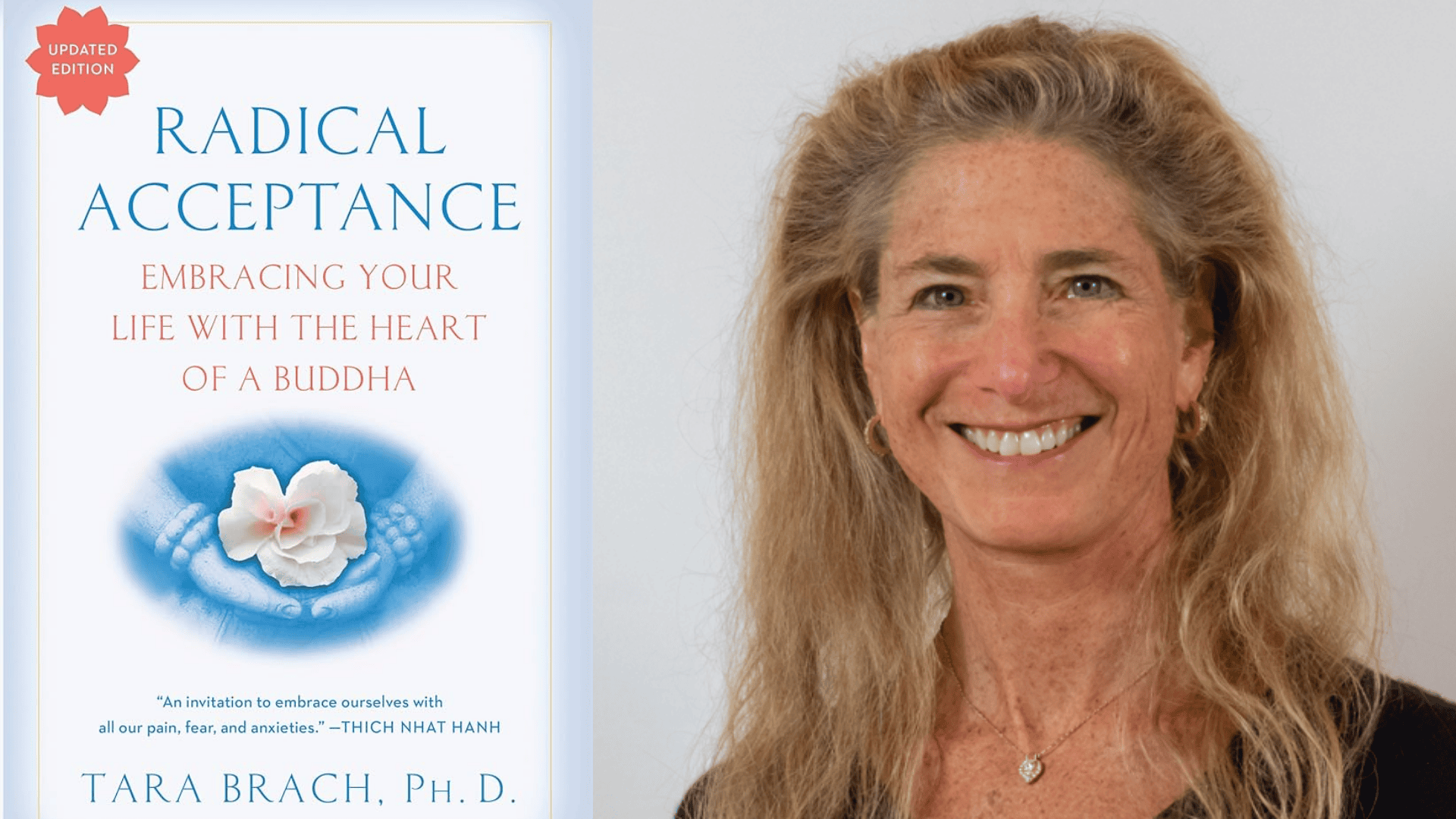
Brach combines Western psychology with Buddhist teachings to address self-judgment and emotional pain.
She demonstrates how meditation can help heal wounds caused by perfectionism, shame, and fear. The book includes guided meditations designed to help you develop self-compassion.
Her work particularly helps people who struggle with harsh inner critics or past trauma that affects their meditation practice.
- Author: Tara Brach
- Core teaching: Self-compassion through meditation
- Best for: People struggling with self-criticism or trauma
- Key takeaway: Healing begins with accepting ourselves fully.
9. The Untethered Soul
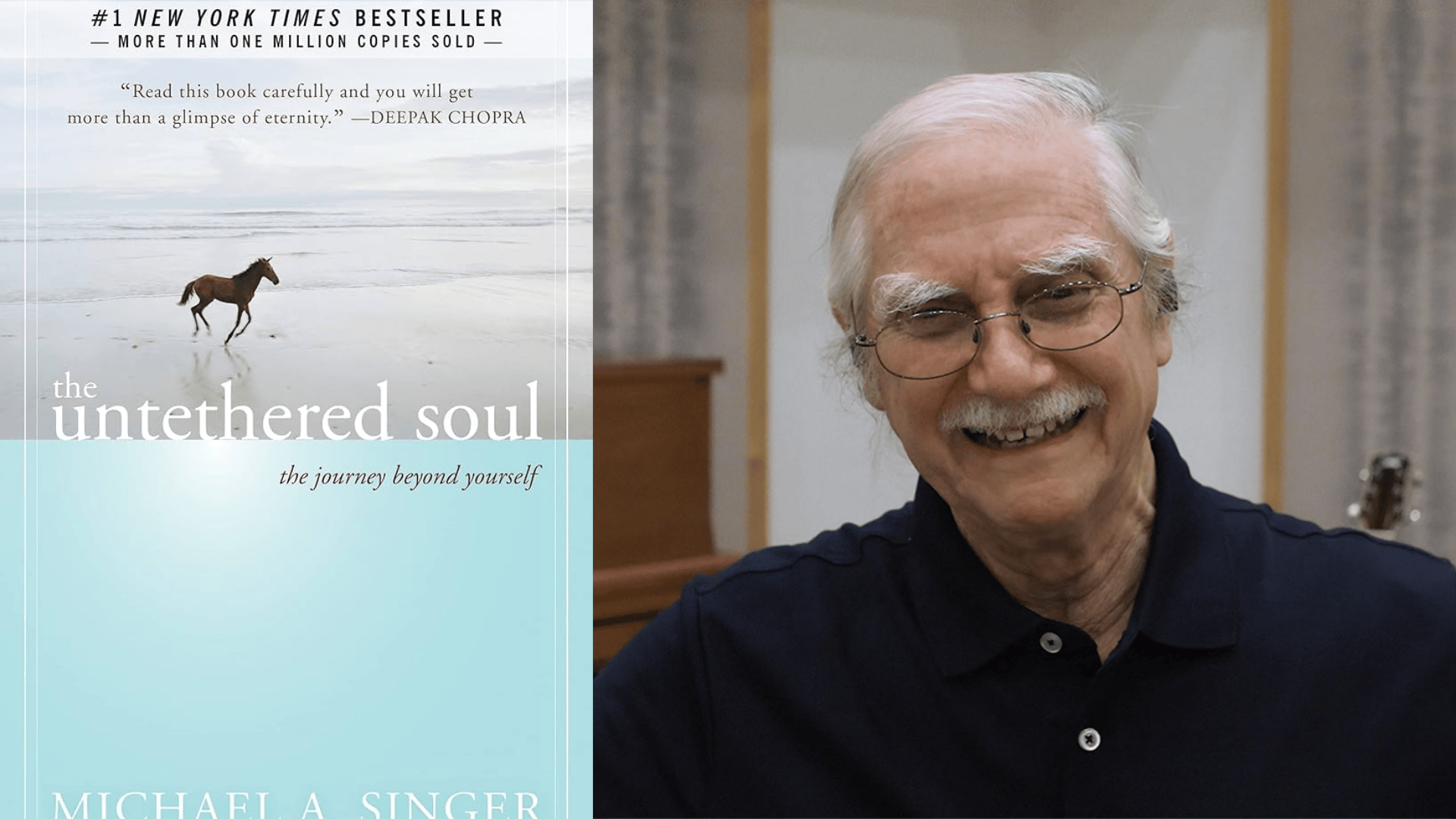
Singer explores the relationship between consciousness and the mind’s constant chatter. He teaches how to observe thoughts and emotions without being controlled by them.
The book offers practical methods for finding inner stillness and freedom. His approach helps readers understand the difference between their true selves and the voice in their heads that never stops talking.
- Author: Michael A. Singer
- Core teaching: Detachment from thoughts and emotions
- Best for: Readers seeking inner peace and freedom
- Key takeaway: You are not your mind; you are the observer.
10. Zen Mind, Beginner’s Mind
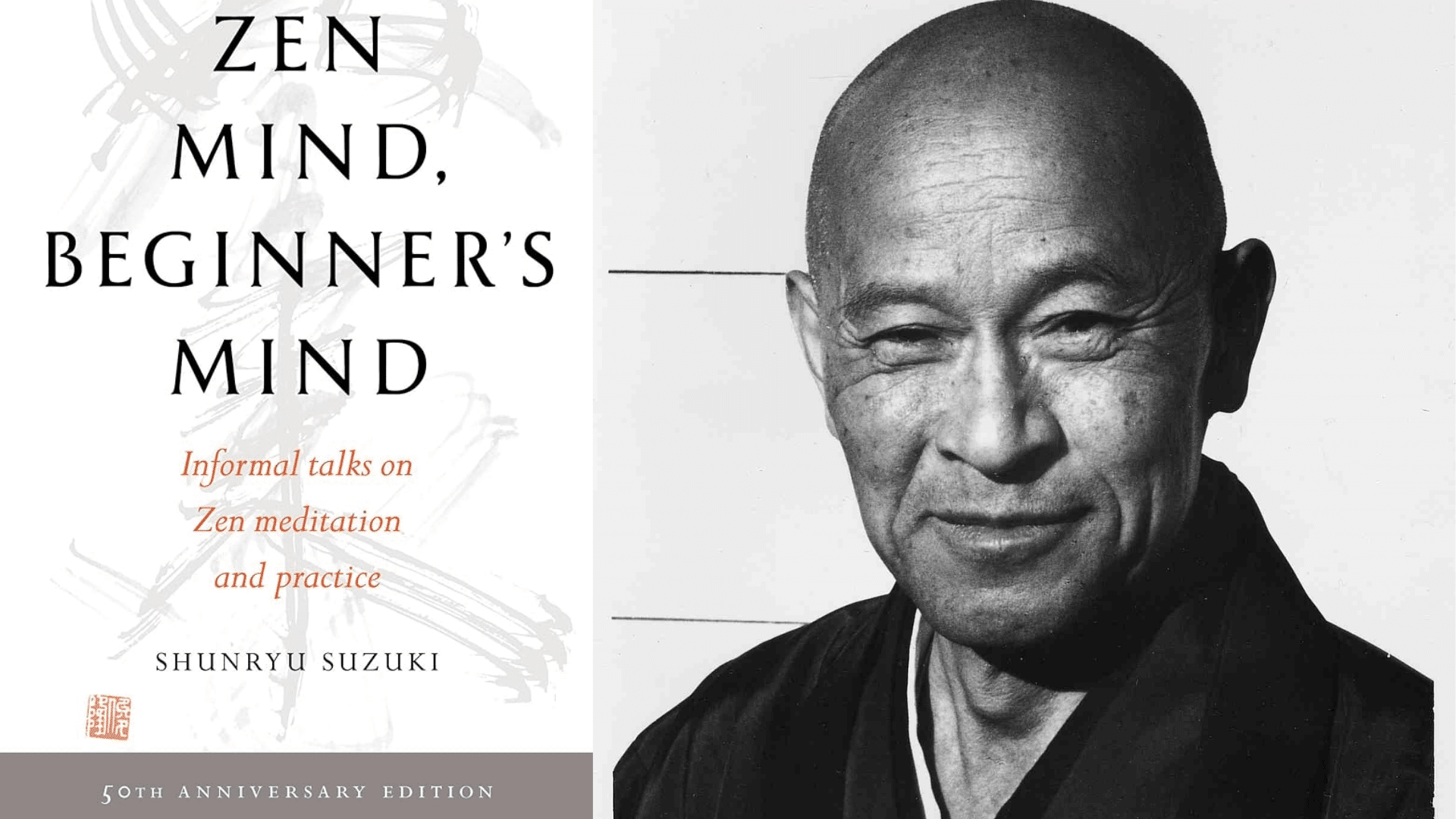
These talks by a Zen master emphasize the importance of approaching meditation with fresh eyes.
Suzuki shows how maintaining a beginner’s attitude keeps practice alive and prevents spiritual arrogance. His simple, profound teachings remain timeless.
The book captures the essence of Zen practice through short, inspiring chapters that can be read and reread for new insights.
- Author: Shunryu Suzuki
- Core teaching: Cultivating openness and “beginner’s mind”
- Best for: Anyone drawn to Zen meditation
- Key takeaway: Approach life as if experiencing everything for the first time.
11. The Book of Joy
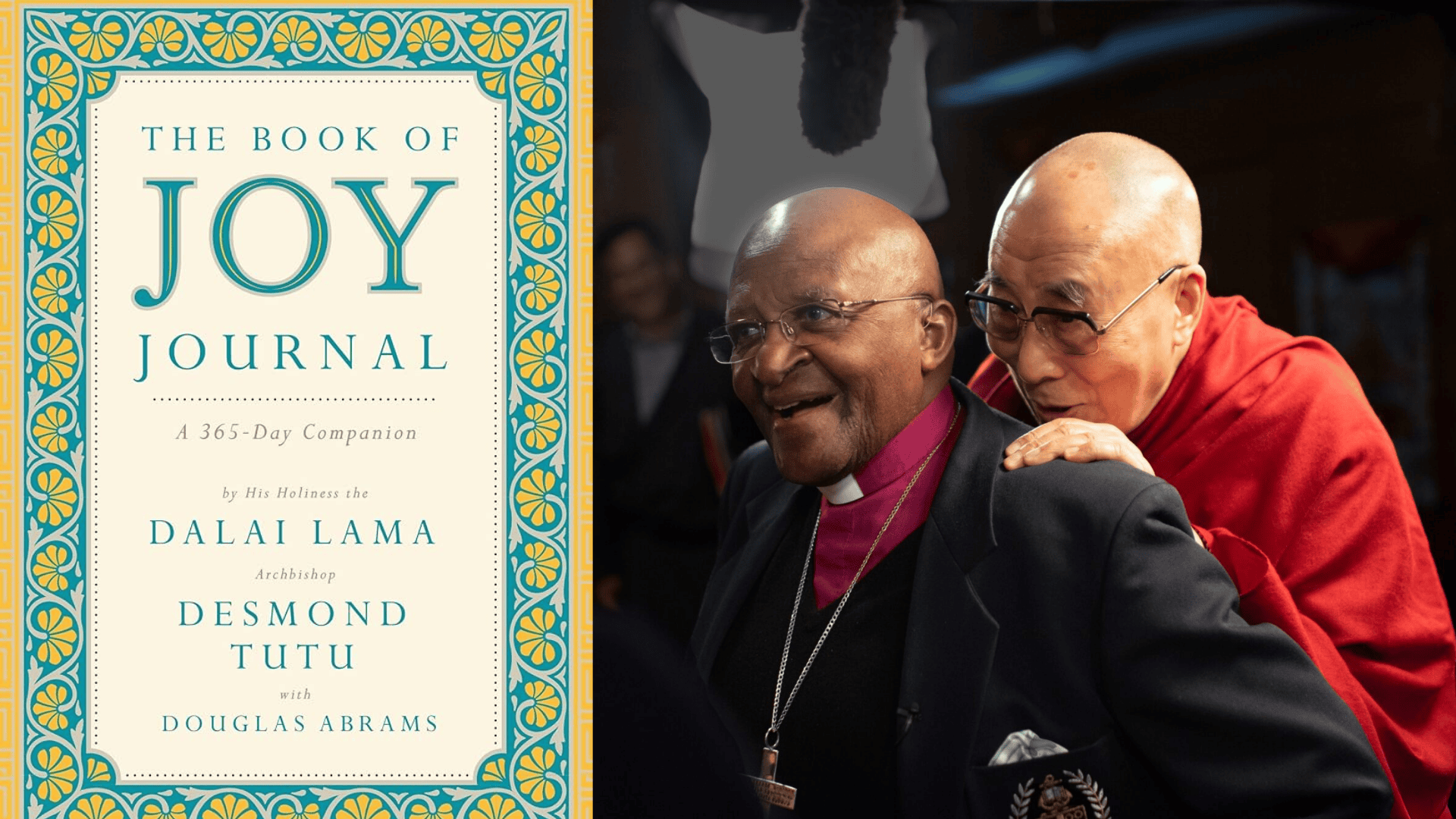
Two spiritual leaders share conversations about finding joy in the midst of life’s challenges. They discuss how meditation and compassion can build resilience and genuine happiness.
The book offers practical exercises for cultivating joy in daily life. Their friendship and wisdom shine through in discussions of suffering, gratitude, and the practices that sustain joy even in the most difficult times.
- Authors: Dalai Lama & Desmond Tutu
- Core teaching: Joy and meditation as paths to resilience
- Best for: Readers seeking happiness and spiritual uplift
- Key takeaway: True joy arises from compassion and connection.
12. Real Happiness: The Power of Meditation
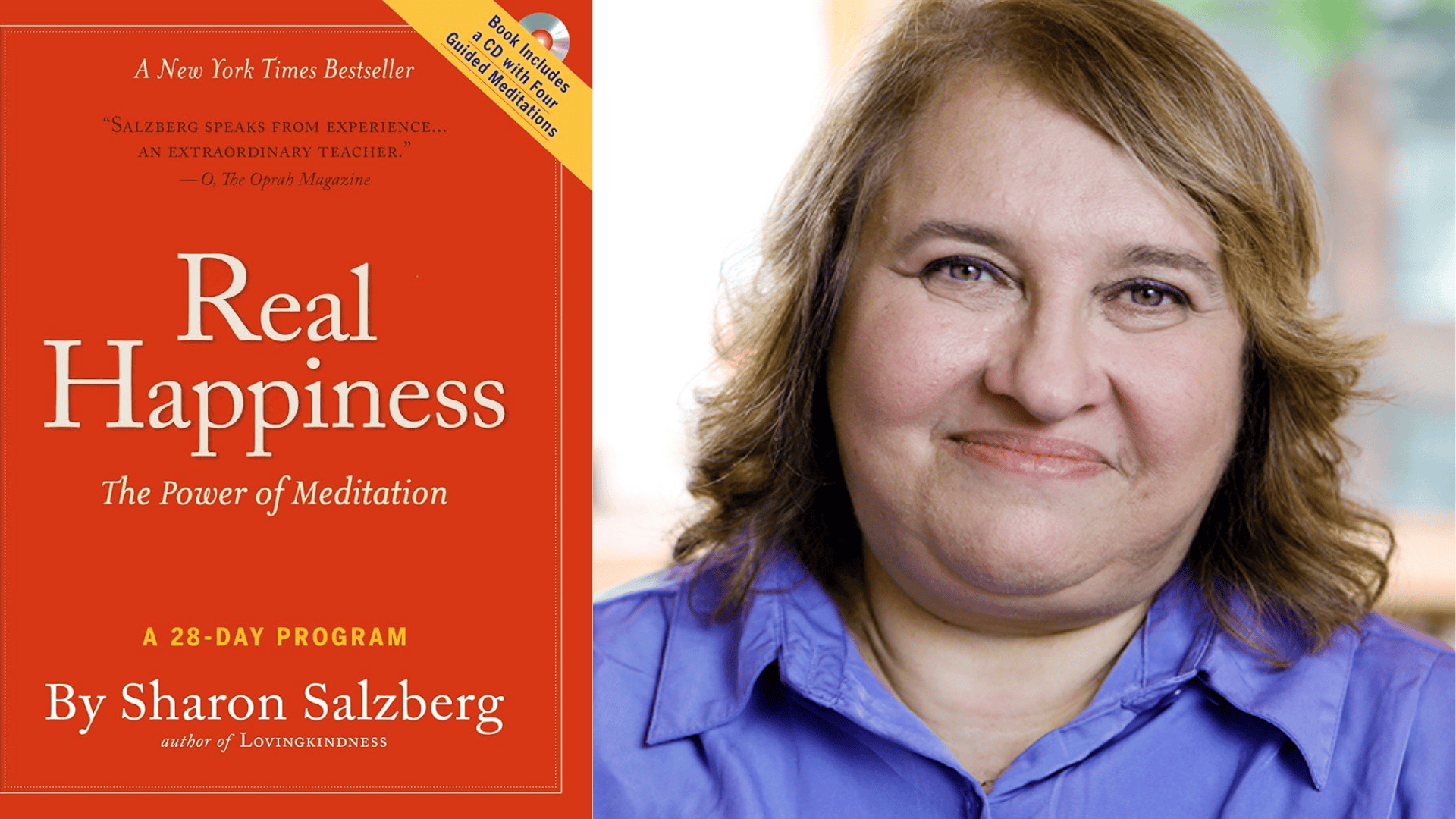
This step-by-step program introduces different meditation techniques over four weeks. Salzberg provides clear instructions, addresses common difficulties, and includes audio support.
The book emphasizes progress over perfection. Her gentle, encouraging approach helps beginners establish a sustainable practice without feeling overwhelmed or inadequate.
- Author: Sharon Salzberg
- Core teaching: A 28-day practical meditation program
- Best for: Beginners wanting structured daily guidance
- Key takeaway: Consistency, not perfection, builds meditation habits.
13. The Art of Living
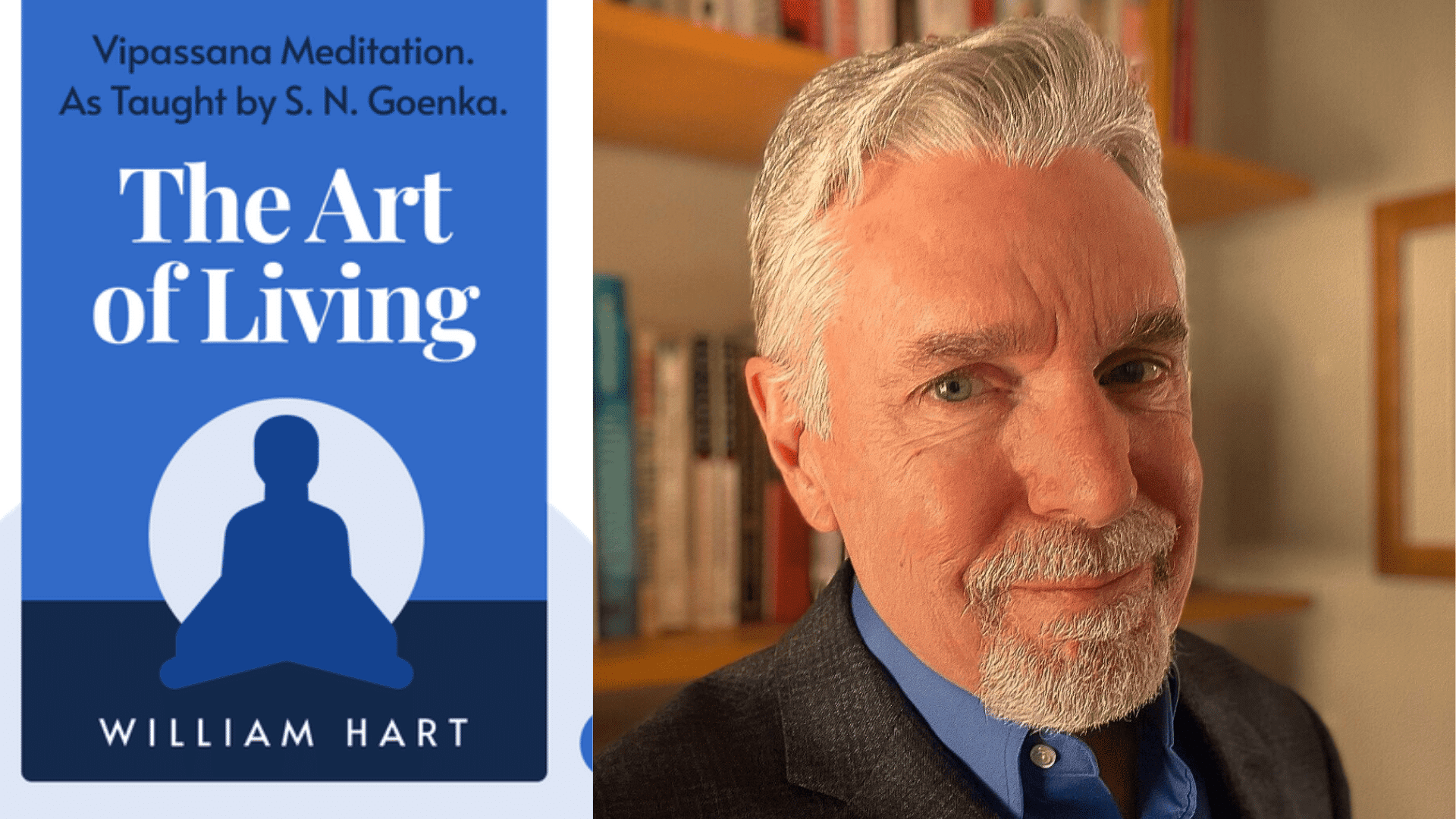
This book presents the meditation technique taught at Vipassana centers worldwide.
Hart explains the theory and practice of insight meditation, including the ethical foundation and mental training components.
The approach stays true to ancient teachings. Readers get a clear understanding of traditional Buddhist meditation without needing to attend a retreat first.
- Author: William Hart (based on S.N. Goenka’s teachings)
- Core teaching: Vipassana as taught in 10-day courses
- Best for: Readers curious about traditional Buddhist meditation
- Key takeaway: Meditation is a path of self-transformation.
14. The Heart of the Buddha’s Teaching
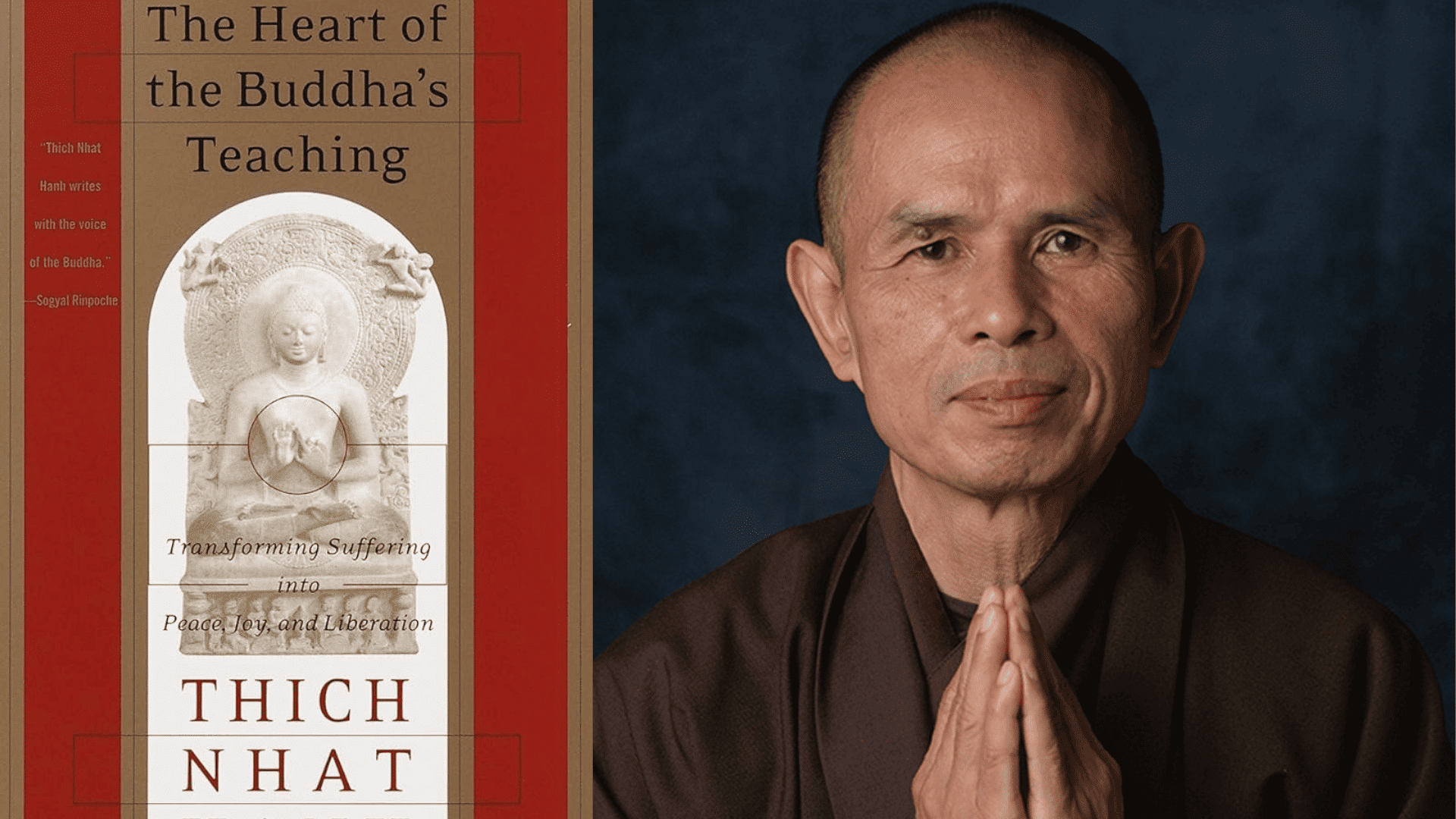
Thich Nhat Hanh explains core Buddhist concepts, such as the Four Noble Truths and the Eightfold Path, in accessible language. He shows how these teachings support meditation practice and daily life.
The book bridges ancient wisdom with contemporary concerns. His clear explanations help readers understand the philosophical foundation behind mindfulness and compassion practices.
- Author: Thich Nhat Hanh
- Core teaching: Buddhist philosophy blended with meditation practices
- Best for: Those who want a deeper spiritual context for meditation
- Key takeaway: Mindfulness is the foundation of compassion and wisdom.
To Sum It Up
The perfect book won’t change your life by sitting on a shelf. Real change happens when you choose one that resonates with you and begin reading. Start with just ten minutes of daily practice.
Notice which approach feels most natural and comfortable for your current situation.
Reading about meditation only takes you halfway. The real benefits come from consistent practice guided by quality instruction.
These books provide the roadmap, but you must take the steps. Choose one book from this list that matches your needs. Order it today and commit to reading one chapter this week.
Your mind craves peace more than you realize. Stop postponing the calm you deserve.
What meditation book will you try first?
Read more blogs on Recovery & Wellness.

